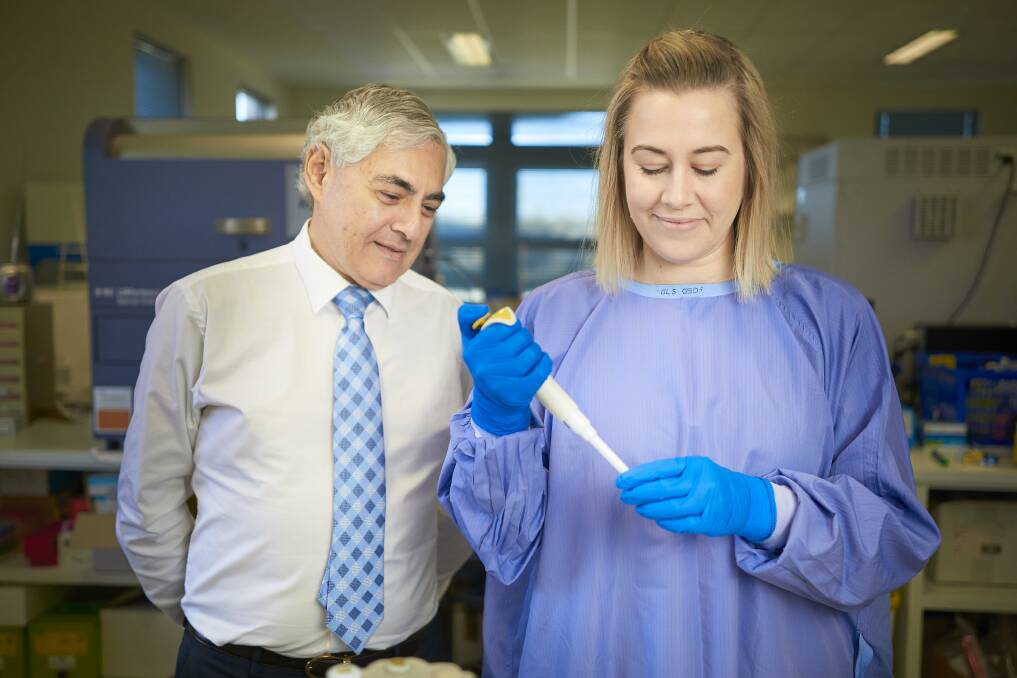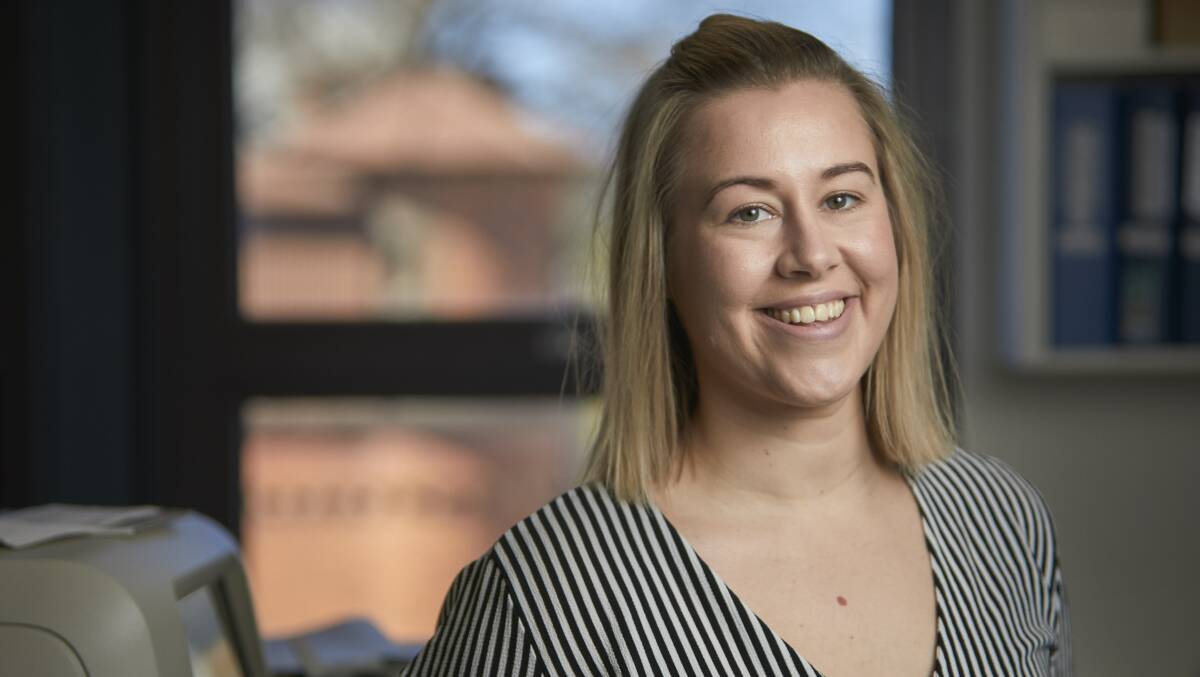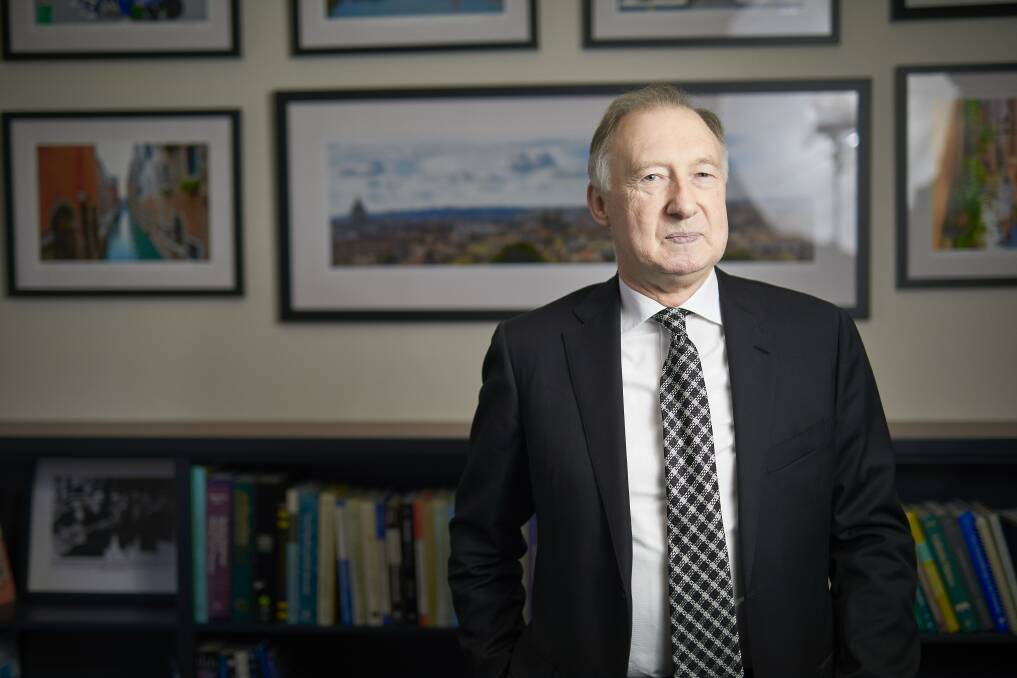
JENEE Mitchell is shining light into a “black box” of understanding in the body’s immune system.
Subscribe now for unlimited access.
or signup to continue reading
The Federation University PhD candidate, has earned international recognition into her work on what goes wrong to cause lesions in Langerhans cell histiocytosis and identifying where future studies on the cancer-like disease should be directed.
Now, Ms Mitchell is keen to stay on and look further into ongoing causes of LCH as a post-doctoral fellow at Fiona Elsey Cancer Research Institute.
Ms Mitchell’s work into the rare immune disease has the potential to unlock new findings to better understand other conditions in which the immune system attacks, like multiple sclerosis.
LCH mostly affects infants and young children in an aggressive form with a low survival rate. In adults, the lesions can eat through bones and, depending on where they are found, make major scarring on vital organs and inflict permanent damage. For example, in the lungs this can create difficulties in a person’s breathing.
Chemotherapy has long been the treatment for LCH and while this is moving more into immunotherapy models, Ms Mitchell’s work suggests this approaches that could be more targeted.
FECRI honourary director George Kannourakis said the Institute was the only research lab in Australia doing such work by looking into LCH. He said Ms Mitchell, who hails from Colac, was a great example of a a young person and a woman reaching the international arena in a science career from a regional base.
“It’s important young people know you can have a career in research and you can do it in a regional area and be recognised internationally,” Professor Kannourakis said.

Ms Mitchell started at FECRI as a research assistant from Federation University and was persuaded to pursue a PhD. Her research, with supervisors Stuart Berzine and Professor Kannourakis, A potentially important role to T cells and regulatory T cells in Langerhans cell Histiocytosis was published in the Clinical Immunology journal this month.
She also hoped to present a paper with more findings at the American Society for Hematology in San Diego later this year.
Ms Mitchell’s work has built on previous studies suggesting T cells – a type of white blood cell responsible for cell-mediated immunity – might be involved in LCH’s progression.
Her studies suggest a group of specialised T cells can create a biased immune response, either inflammatory or anti-inflammatory, and these are likely to be the key drivers in LCH.
One of Ms Mitchell’s papers focuses on a subset of such T cells, known as MAIT cells, and identified that while these decreased in LCH patients, the cells remained functional.She proposes increasing the number of MAIT cells in LCH patients to harness the patient’s immune system fighting power against the lesions.
Another paper looked into T cells known as Foxp3 Tregs, finding a chemical response that is likely blocking other T cells from clearing the lesion. Finding a way to stop these blockers could help to restore a cell balance.
FECRI’s new chairman focused on keeping Ballarat on research frontlines for the long-term

RETIRED Ballarat business executive Graeme Dixon is excited to draw on his experience to help keep this city on the frontlines in the fight against cancer with research.
Mr Dixon steps up as chairman at Fiona Elsey Cancer Research Institute, an internationally renowned team he said punches far above its weight.
He was keen to develop the Institute’s funding model, by creating a corpus fund to ensure consistent steady backing for scientists to feel more certain and confident in carrying out their work.
- RELATED COVERAGE: One day we will solve cancer, says FECRI’s retiring chairman
FECRI is Australia’s only regional cancer research centre. It is non-government funded and relies on community support for a long-term investment in finding ways to more effectively treat and diagnose cancer.
“The Institute plays a major role in Ballarat’s scientific community, particularly with Federation University,” Mr Dixon said.
When you look at the collaboration with American universities and with national universities and institutes, you recognise that’s amazing work and to be part of that in the Ballarat community is fantastic.
FECRI started in a paintshed at the back of St John of God Ballarat Hospital 20 years ago.
The Institute employs nine PhD students from Federation University and 10 senior scientific staff working primarily in research into chronic lymphoid leukemia, ovarian cancer, histiocytic diseases and immunology.
The team’s work has been published in more than 30 scientific journals in the past 18 months.
Mr Dixon spent the last 10 years of his career as a general manager in the automotive industry and said there were lots of parallels in the research and development to cancer research – only in cancer research, there was far more collaboration and sharing across the world.
“I feel that says a lot about the unknowns of cancer,” Mr Dixon said. “It really is a long-term investment and Ballarat is a part of that.”
Have you signed up to The Courier's daily newsletter and breaking news emails? You can register below and make sure you are up to date with everything that's happening in Ballarat.














